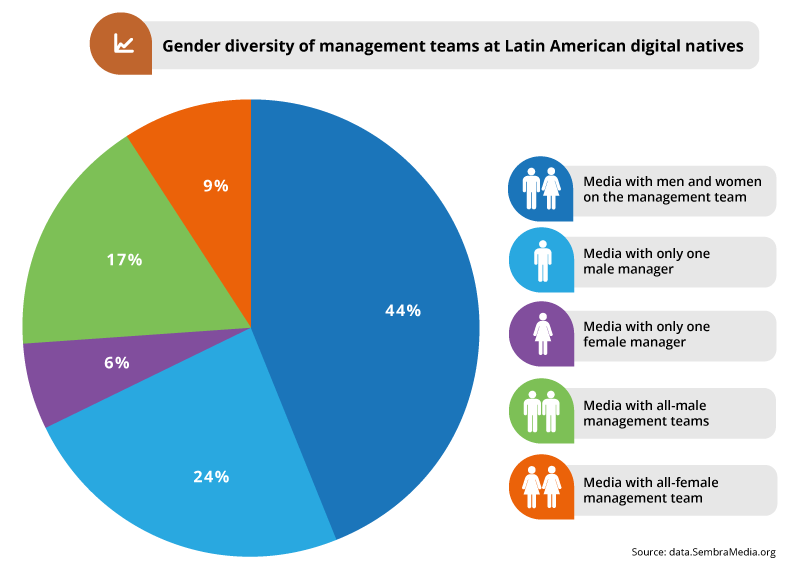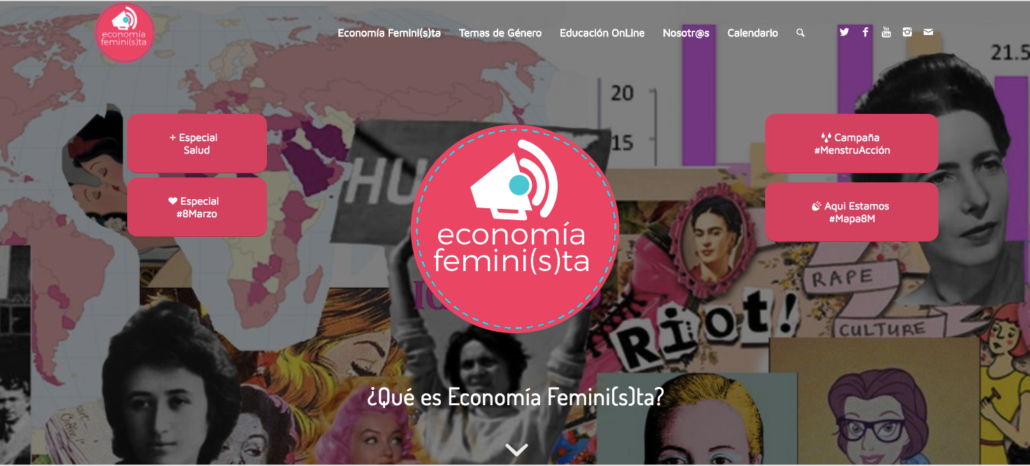WOMEN LEADERS
RECORD NUMBER OF WOMEN FOUNDERS AND LEADERS
Women are taking advantage of the low barriers to entry in digital media startups to go around the glass ceilings of traditional media and build their own publishing companies.
 Going around the glass ceiling
Going around the glass ceiling
One of the most dramatic findings of our study was that women were involved in starting 62% of the 100 sites surveyed in Argentina, Brazil, Colombia, and Mexico. Many of these ventures had mixed teams of founders.
When you add up all of the founders, 38% of the total were women. This finding is consistent with the number of women founders represented in the SembraMedia directory.
When we analyzed the entire directory of more than 600 digital natives from throughout the Spanish-speaking world, we again found that about 40% of the founders were women.
This finding suggests that women are taking advantage of the low barriers to entry in digital media startups to go around the glass ceilings of traditional media and build their own publishing companies.
The significance of this is hard to overstate, given the highly patriarchal culture of Latin America and the dismal numbers of women owners in traditional media.
In a 2014 study of Mexican media ownership, Aimée Vega Montiel of the Universidad Autónoma found that less than 1% of television station owners were women and none of the country’s newspapers included a woman owner. (Read full study in PDF.)
Women are also playing a significant role in the executive and management teams of these digital natives.
Although the titles used vary among the 100 ventures we studied, our researchers identified women in management positions in 57 of them.
After working with hundreds of digital media entrepreneurs, there is considerable anecdotal evidence that women-led media organizations are more cooperative, more likely to form partnerships and share resources, and they are producing some of the more important coverage of underserved communities.

Also of note, women seem more likely to work as co-founders when they start media ventures.
We did not set out to study women-led organizations, and we do not have the data yet to measure their influence, to determine how women founders shape the kinds of stories they produce, or whether their involvement impacts business and sustainability.
We believe this finding about the relatively high number of women in leadership roles in digital media in Latin America is significant and warrants further study.
Case Study: Economía Femini(s)ta
The founders of the website Economía Femini(s)ta, Mercedes D’Alessandro and Magalí Brosio, are both economists, a profession that has historically attracted few women.
Since they launched in 2015, their studies of women in the Argentine economy have attracted national and international attention, including from The Guardian and Monocle.
In our interview, they said they wanted their site to start conversations with women about economics, and that their work began to attract serious attention when they published an article with the title: “Women earn less than men around the planet, and your mom, too.”
That story was picked up by several other media companies, including Página 12, The Bubble, and UNO. In addition, Argentina’s National Budget cites several reports from Economía Femini(s)ta.
The Ministry of Economy, in its social networks and its website, also quoted their articles on the salary gap and the glass ceiling.
After selling two editions of their book, Economía Femini(s)ta, they began to monetize their young startup with webinars. They have since collaborated with other media, such as Media Chicas and Chequeado, to produce training events.
The founders say their goal is to raise awareness of economic issues, educate people, and connect with people who can change things.
In that spirit, they conducted a study of teen pregnancy in Argentina, with a statistical analysis that showed most teenage mothers dropped out of school in part because there are practically no secondary schools that have day-care centers.
The report helped bring attention to the fact that adolescent mothers’ lack of education is a major obstacle to their success in the labor market in Argentina.

